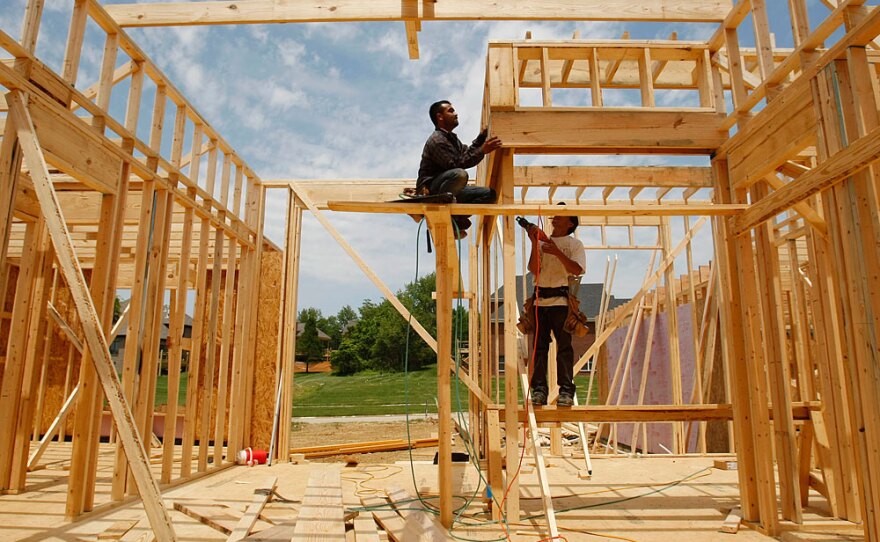New numbers released Thursday by the National Association of Realtors show that the rate of existing home sales fell in June, down 5.1 percent from May.
That's just the latest piece of bad news on the housing front this week. Even as mortgage rates hit record lows, new home construction and permits for single-family homes are both down as well.
At the beginning of the year, new home sales picked up as buyers rushed to close deals before the first-time buyer tax credit expired April 30. But Kevin Lisota, a real estate broker in Seattle, says that as the expiration date drew near, business slowed.
"Basically, new clients coming in the door decreased," Lisota says. "And then when May 1 hit, the number of people actually writing offers decreased dramatically."
Lisota saw offers drop by almost half from April to May. It takes about a month for him to close a sale after an offer has been made, so June sales numbers are the first to start reflecting that drop-off.
Some sellers are still thinking about the value of their homes in terms of what they paid for them years ago, Lisota says, when times were better. And that makes them sit on the market longer.
"Are there sellers out there that are still overpricing their homes, or hoping that they'll get more? Yes, those sellers are definitely still out there," Lisota says. "And I think they're coming to a realization on what price they'll actually get -- relatively slow[ly] in some cases."
Economist: Worst Of The Crash Over
In many markets across the country, prices are still falling. Foreclosures are on the rise, flooding the market with a surplus of cheap houses. Some economists worry that housing values will fall below the levels they hit during 2009. Others, like Mark Zandi, chief economist at Moody's Analytics, are slightly more optimistic.
Many potential homebuyers are sitting on the sidelines because they think perhaps we'll get another tax credit ...
Zandi says he thinks the worst of the crash is over. He expects selling conditions to be "measurably better" by the spring of 2012, as people who held off buying for so long finally take the plunge.
"I think the fundamentals of the economy are not where we need them to be, but they're a long way from where they were," Zandi says.
Zandi says federal recovery programs like the tax credit were necessary to pull the U.S. out of the housing crash. But now, they're actually slowing down recovery.
"Many potential homebuyers are sitting on the sidelines because they think perhaps we'll get another tax credit, so they're waiting to see," Zandi says. "Assuming that we don't -- and they become convinced of that soon -- then I expect we'll see better sales numbers."
No More Housing Tax Credits
Lucien Salvant, with the National Association of Realtors, says consumers shouldn't expect another tax credit. His group isn't lobbying for another one.
"What we feel is that we've had several tax credits in the past year and a half -- they've done what they're supposed to do, which is to bring buyers back into the market," Salvant says. "Now we need to see if the housing market can stand on its own two feet and perform on its own."
For the market to do that, most industry experts agree that interest rates must remain low, foreclosures have to slow down, and -- most importantly -- new jobs must be created. When that will happen, though, is anyone's guess.
Copyright 2023 NPR. To see more, visit https://www.npr.org. 9(MDAzMjM2NDYzMDEyMzc1Njk5NjAxNzY3OQ001))






